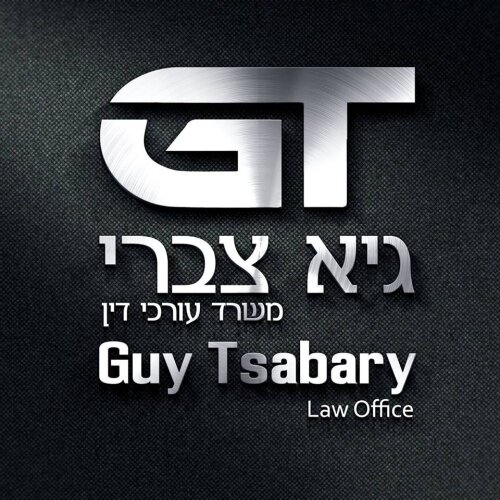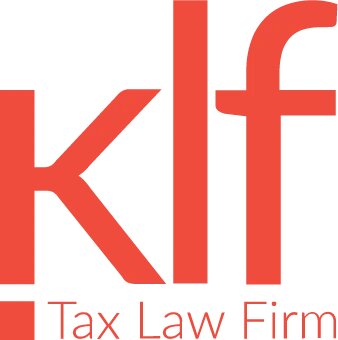Best Restructuring & Insolvency Lawyers in Jerusalem
Share your needs with us, get contacted by law firms.
Free. Takes 2 min.
List of the best lawyers in Jerusalem, Israel
About Restructuring & Insolvency Law in Jerusalem, Israel
Restructuring and insolvency law in Jerusalem, Israel concerns the legal processes and regulations that govern how individuals, businesses, and organizations handle financial distress, debt repayment problems, and insolvency. When a business or individual can no longer meet their debt obligations, Israeli law outlines various procedures for settling debts, protecting creditors, and where possible, facilitating the rehabilitation of the debtor. Jerusalem, as Israel's capital and a central commercial hub, is home to many legal professionals and courts experienced in handling such matters. The overarching aim is to create a fair balance between giving debtors a fresh start and ensuring creditors recover as much as possible.
Why You May Need a Lawyer
Situations involving restructuring and insolvency are often stressful and legally complex. You may need a specialist lawyer in the following scenarios:
- You or your business is struggling to pay debts and facing demands from creditors.
- You have received a legal notice regarding bankruptcy or an insolvency proceeding.
- Your company needs to negotiate a restructuring agreement with creditors.
- You are a creditor seeking to recover money owed from an insolvent debtor.
- You are threatened with seizure or liquidation of assets.
- You are interested in reaching a court-approved arrangement (known as "hesseder binyan") to avoid bankruptcy.
- You need advice on directors' responsibilities and personal liability during financial distress.
A lawyer ensures procedural correctness, protects your interests, and helps you understand your obligations and rights under Israeli law.
Local Laws Overview
The key aspects of restructuring and insolvency law in Jerusalem stem from national Israeli law, primarily the Insolvency and Economic Rehabilitation Law, 5778-2018, which replaced earlier bankruptcy and company recovery statutes. Key points include:
- Application Scope: Applies to individuals, companies, and partnerships experiencing financial distress.
- Initiating Proceedings: Insolvency proceedings can be started by the debtor or by creditors via the Jerusalem District Court.
- Moratorium on Proceedings: Once proceedings begin, there is a temporary freeze on debt collection by creditors.
- Trustee Appointment: A court-appointed trustee manages the process, safeguards assets, and communicates with creditors.
- Debt Arrangements: Debtors may propose a rehabilitation plan which, if approved by creditors and the court, allows continued business operations.
- Liquidation: If rehabilitation is not viable, the law provides for orderly liquidation and distribution of assets.
- Insolvent Individuals: Individuals may benefit from order of discharge after a certain period, subject to conditions.
- Directors and Officers: Company leaders have specific duties, and failure to fulfill these may lead to personal liability.
- Jerusalem Court System: The district court in Jerusalem handles significant insolvency cases, ensuring specialized judicial attention.
Navigating these processes requires a clear understanding of both procedural rules and the economic aspects of insolvency.
Frequently Asked Questions
What is the difference between restructuring and insolvency?
Restructuring refers to procedures intended to reorganize a debtor's finances and operations to allow continued business activity, typically under court supervision. Insolvency describes a legal state where an individual or business cannot pay its debts and might result in asset liquidation or formal bankruptcy procedures.
How do I know if I am insolvent according to Israeli law?
A person or business is considered insolvent if they are unable to meet their financial obligations when due. Creditors or the debtor themselves can initiate proceedings if insolvency is suspected.
Can I avoid bankruptcy if my company is struggling?
Yes, Israeli law encourages rehabilitation when possible. You may propose a debt settlement or restructuring agreement to creditors and seek court approval to avoid bankruptcy.
What role does the trustee play in insolvency proceedings?
The trustee manages the debtor’s assets, protects creditors’ interests, oversees business operations if continuing, and ensures compliance with court orders while seeking the best possible outcome for all parties.
Are directors and officers personally liable for company debts?
Typically, company debts are not the personal responsibility of directors. However, if directors breach their legal duties or act negligently, they may face personal liability for resulting losses, especially during insolvency.
Can an individual file for bankruptcy in Jerusalem?
Yes, individuals can voluntarily file for bankruptcy under Israeli law, or it can be initiated by creditors. Proceedings generally take place in the district court relevant to the individual’s residence, including Jerusalem.
What happens to existing lawsuits against an insolvent debtor?
Once insolvency proceedings begin, most existing lawsuits and enforcement actions are paused (moratorium) to prevent a scramble for assets and to allow a coordinated debt recovery process.
How are creditors paid during insolvency?
Creditors are ranked by law and typically paid according to statutory priorities. Secured creditors are generally paid first from designated collateral, with remaining assets distributed to unsecured creditors and employees.
Can rehabilitation plans be rejected?
Yes, creditors vote on proposed restructuring plans. If the plan is not accepted by required majorities, or the court finds it unfair or unworkable, it may be rejected and liquidation may follow.
How long does the insolvency process take?
The process duration varies depending on case complexity, the number of creditors, disputes, and whether restructuring is attempted. Cases can last several months to multiple years, especially if litigation arises.
Additional Resources
For further guidance and support, the following Israeli organizations and authorities may be helpful:
- Israeli Ministry of Justice - Insolvency and Economic Rehabilitation Service: The governmental body overseeing insolvency and rehabilitation, providing forms, procedures, and information.
- Jerusalem District Court: Handles most insolvency-related cases in Jerusalem.
- Bar Association - Jerusalem District: Can refer you to accredited lawyers specializing in restructuring and insolvency.
- Chamber of Commerce - Jerusalem: Offers support and information for local businesses facing financial difficulties.
- Non-profit Organizations: Groups such as Paamonim offer financial guidance to private individuals in distress.
Next Steps
If you or your business are facing financial challenges and believe you may need legal advice about restructuring or insolvency in Jerusalem, it is important to act promptly. Here are the recommended steps:
- Gather all relevant documents related to your debts, assets, and financial situation.
- Contact a qualified lawyer with experience in restructuring and insolvency law in Jerusalem to discuss your situation confidentially.
- Consider seeking initial guidance from one of the resources listed above while preparing for your legal consultation.
- Discuss possible options with your lawyer, including out-of-court settlements, formal rehabilitation, or bankruptcy filings.
- Remain transparent with legal and financial advisors to ensure the best possible outcome.
Remember, timely legal advice can help protect your interests, minimize losses, and increase the chances of a successful resolution.
Lawzana helps you find the best lawyers and law firms in Jerusalem through a curated and pre-screened list of qualified legal professionals. Our platform offers rankings and detailed profiles of attorneys and law firms, allowing you to compare based on practice areas, including Restructuring & Insolvency, experience, and client feedback.
Each profile includes a description of the firm's areas of practice, client reviews, team members and partners, year of establishment, spoken languages, office locations, contact information, social media presence, and any published articles or resources. Most firms on our platform speak English and are experienced in both local and international legal matters.
Get a quote from top-rated law firms in Jerusalem, Israel — quickly, securely, and without unnecessary hassle.
Disclaimer:
The information provided on this page is for general informational purposes only and does not constitute legal advice. While we strive to ensure the accuracy and relevance of the content, legal information may change over time, and interpretations of the law can vary. You should always consult with a qualified legal professional for advice specific to your situation.
We disclaim all liability for actions taken or not taken based on the content of this page. If you believe any information is incorrect or outdated, please contact us, and we will review and update it where appropriate.














